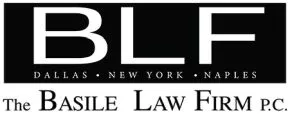The New York Court of Appeals has been busy redressing lower state and federal courts' interpretations of its usury laws for the past two years. Two Circuit Courts of Appeals—the 9th Circuit and the 2nd Circuit—have certified questions to New York's highest court on certain unsettled usury issues. See Adar Bays, LLC v. GeneSYS ID, Inc., 962 F.3d 86 (2d Cir. 2020); Fast Trak Inv. Co., LLC v. Sax, 962 F.3d 455 (9th Cir. 2020). The latter case was dismissed upon settlement of those issues. Our Adar Bays case resulted in a convincing win on other usury issues.
Another unsettled issue of law that may make its way to the New York Court of Appeals is contractual default interest and default charges built into financial transactions, and whether default rates and charges should apply to interest subject to New York's criminal usury analysis. There is a split of authority stretching over both federal and state courts on this issue that has not been addressed, nor resolved by New York's highest court. If the New York Court of Appeals takes an appeal on this issue, I believe they will find default interest rates charged in excess of 25% will violate New York's criminal usury statute and will void those transactions as well.
A default charge—frequently included in financial transactions—is a specified percentage of interest or other form of compensation meant to compensate the lender in the event of a default. When default compensation provision is included in the agreement, it is sometimes interpreted as a form of a penalty. Several courts have held these types of penalties to be unenforceable. See Wells Fargo Northwest Bank, N.A. v. Varig-S.A., 2003 U.S. Dist LEXIS 10812, at 15 (S.D.N.Y. Jun. 20, 2003)( stating that a default provision in a contract to secure performance is an unenforceable penalty); Rattigan v. Commodore Int'l Ltd., 739 F. Supp. 167, 169 (S.D.N.Y. 1990)( stating that if a default provision “is intended by the parties to operate in lieu of performance, it will be deemed a liquidated damages clause and may be enforced by the courts . . . . If such a clause is intended to operate as a means to compel performance, it will be deemed a penalty and will not be enforced.”) citing Brecher v. Laikin, 430 F. Supp. 103, 106 (S.D.N.Y. 1977). See also PDV Sweeny, Inc. v. ConocoPhillips Co., 2015 U.S. Dist. LEXIS 116175, at *29 (“[T]he Court again acknowledges that the prohibition on penalty clauses in contracts is well-established public policy in New York.”). Let's not forget that New York's criminal usury statute has been held to reflect New York's “fundamental public policy”. That's also no coincidence.
Applying default rates of interest to a criminal usury analysis is an open issue in New York as the New York Court of Appeals has yet to decide a case on this. Some Federal courts in New York have held that default interest should be included in the calculation to determine whether a loan instrument violates criminal usury laws. One of the leading cases on this issue is a federal court case in the Southern District of New York. See Madden v. Midland Funding, LLC, 237 F. Supp. 3d 130 (S.D.N.Y. 2017). Madden stands for the proposition that default interest rates are capped by New York's criminal usury laws. Since the New York Court of Appeals has yet to render any decisions on this issue, one function of the courts is to predict what New York's highest court would do if it faced the same question. In Madden, J. Seibel found that “[T]he New York Court of Appeals, were it to face this situation, would hold that the criminal usury cap limits interest charged on debts to 25% annually, even for defaulted debts.” Madden, F. Supp. 3d at 144 (emphasis added). Following the direction of Madden, another Federal court in the Southern District of New York in the case Union Capital LLC v. Vape Holdings, Inc., 2017 U.S. Dist. LEXIS 60445, at *23 (S.D.N.Y. March 31, 2017), similarly held that the correct interpretation of the case law “urges an interpretation that the state criminal usury cap does apply to default interest.” Judge Seibel's finding is consistent with our recent Adar Bays decision as the Adar Bays court held that New York's criminal usury statute reflects New York's fundamental public policy against charging interest rates above 25%, the New York Legislature having made that a crime under New York law.
Neighboring states such as Massachusetts include default interest in its usury calculations. In fact, courts in Massachusetts have held that “the all-inclusive language utilized by the Legislature in [the criminal usury laws] brings within its ambit…default provision[s].” See Begelfer v. Najarian, 381 Mass. 177, 182 (Mass. 1980).
Other states like Florida have weighed in on similar issues involving usury calculations and whether certain penalties are included in those calculations. For example, In Griffin v. Kelly, 92 So.2d 515, 518 (Fla. 1957), Florida Supreme Justice Hobson, with the approval from Restatement of Contracts, quoted:
“When the intent of a party to bargain is to make a loan of money or an extension of the maturity of a pecuniary debt for a greater profit than is allowed by law, the agreement is illegal though the transaction is put in whole or in part in the form of sale, a contract to sell or other contract.”
Moreover, in Home Credit Co. v. Brown, 148 So.2d 257, 260 (Fla. 1962) the court held “that the presence of the acceleration option contingent on default did not alone warrant a finding of usury in the inception of the transaction…and that in testing the results of its exercise the reserved interest must be calculated as payment for the use of the actual outstanding principal sum until the acceleration option became effective by entry of a decree thereon…” Furthermore, the Court held “that the resulting rate of interest nevertheless exceeded 25% and the ultimate disposition of the cause in the district court by forfeiture of principal and interest under Sec. 687.07, supra, was proper.” Id.
Some Federal Courts in New York have held that default interest is not included in a civil usury calculation. See, e.g., LG Capital Funding, LLC v. PositiveID Corp., 2019 U.S. Dist. LEXIS 126991, at *31 (E.D.N.Y. July 29, 2019). In fact, the Second Circuit Court of Appeals recently held that the “civil usury” cap does not apply to defaulted obligations. See 1077 Madison St., LLC v. Daniels, 954 F.3d 460, 465 (2d Cir. 2020). Despite the fact that the Second Circuit's determination only dealt with default interest in the case of civil usury, courts seem to bootstrap this idea into cases involving a criminal usury violation analysis.
One of the major differences between New York's civil and criminal usury statutes, however, is that a violation of New York's criminal usury laws is, in turn, a violation of a fundamental public policy of New York. See, e.g., Guerin v. New York Life Ins. Co., 271 A.D. 110, 116 (1st Dept. 1946) (“Usury is a question of supervening public policy and relates to charges which are in themselves prohibited.”). The New York Court of Appeals has even noted the deeply-rooted history of the criminal usury laws in New York. “The purpose of usury laws, from time immemorial, has been to protect” those in dire need of money who have no leverage against toxic lenders. See Schneider v. Phelps, 41 N.Y.2d 238, 243 (N.Y. 1977). The recent New York Court of Appeals decision in Adar Bays, LLC v. GeneSYS ID, Inc., 37 N.Y.3d 320, 333 (N.Y. 2021) makes clear that the criminal usury statute applies to everyone equally, even corporations, no matter what their sophistication, and that the law applies to all because it does not discern differences in economic status although that may have been the basis for first establishing these laws. Further, the hierarchy of New York's usury statutes has built-in recognition of statuses, as corporations cannot use the civil usury statute at all.
The New York Court of Appeals held in Adar Bays that a loan contract is void ab initio if the interest charged is determined to be criminally usurious (above 25%). Given the outcome in Adar Bays and Madden, it is clear that (i) civil and criminal usury are vastly different and should not be treated similarly by courts, and (ii) default interest should therefore apply in the criminal usury analysis wherein a lender charges more than 25% total interest on a loan, given that criminal usury is a fundamental public policy consideration as well as a crime in New York.
The New York Court of Appeals has not said much with respect to default interest in the context of a calculation to determine whether a transaction is criminally usurious, but nonetheless, has held that a criminally usurious transaction is void at its inception. This is where additional guidance from the New York Court of Appeals to interpret the issue in light of the fact that criminal usury is a fundamental public policy of the state and its violation is a crime.
The content of this article is intended to provide a general guide to the subject matter. Specialist advice should be sought about your specific circumstances.



